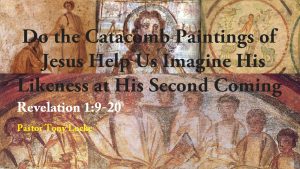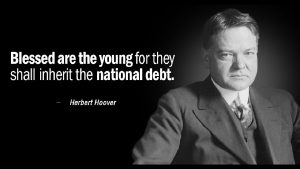Archive for April 2012
Do the Catacomb Paintings of Jesus Help Us Imagine His Likeness at His Second Coming?
Sermon Series in Revelation # 02 Revelation 1:9-20 9 I, John, your brother and partner in the tribulation and the kingdom and the patient endurance that are in Jesus, was on the island called Patmos on account of the word of God and the testimony of Jesus. 10 I was in the Spirit on the Lord’s…
Read MoreThe Book of Revelation Ends the Same for Everyone — God says, "Checkmate!"
Sermon Series in Revelation # 01 Revelation 1:1-8 1 The revelation of Jesus Christ, which God gave him to show to his servants the things that must soon take place. He made it known by sending his angel to his servant John, 2 who bore witness to the word of God and to the testimony of…
Read MoreFaith, Freedom, and the First Amendment: The Guarantee of Religious Liberty

Freedom of religion is at the heart of the American understanding of liberty. Under our constitutional order, the free exercise of religion is not a mere matter of toleration but an inalienable natural right.
As George Washington explained in his famous letter to the Hebrew Congregation at Newport: “All possess alike liberty of conscience and immunities of citizenship. It is now no more that toleration is spoken of, as if it was by the indulgence of one class of people, that another enjoyed the exercise of their inherent natural rights.” There are, of course, some limits to the free exercise of religion. Citizens cannot invoke the First Amendment to break general laws (although exemptions may be granted).
But within the confines of the law, all citizens have the same right of conscience. This essay is adapted from The Heritage Guide to the Constitution for a series providing constitutional guidance for lawmakers.
Visit the Heritage Foundation to learn more
Read MoreJesus told Mary, “I am Not Yet Ascended” — Didn’t He Already Go to Heaven?
Apostle’s Creed Sermon Series John 17:1-5 1 When Jesus had spoken these words, he lifted up his eyes to heaven, and said, “Father, the hour has come; glorify your Son that the Son may glorify you, 2 since you have given him authority over all flesh, to give eternal life to all whom you have given…
Read MoreIs the National Debt a Sin?
Reverend Anthony R. Locke Nehemiah 5:1-13 English Standard Version 1 Now there arose a great outcry of the people and of their wives against their Jewish brothers. 2 For there were those who said, “With our sons and our daughters, we are many. So let us get grain, that we may eat and keep…
Read MoreDid God Pollute the Environment by Creating Oil?
Genesis 1:24-31 English Standard Version 24 And God said, “Let the earth bring forth living creatures according to their kinds—livestock and creeping things and beasts of the earth according to their kinds.” And it was so. 25 And God made the beasts of the earth according to their kinds and the livestock according to their…
Read More


